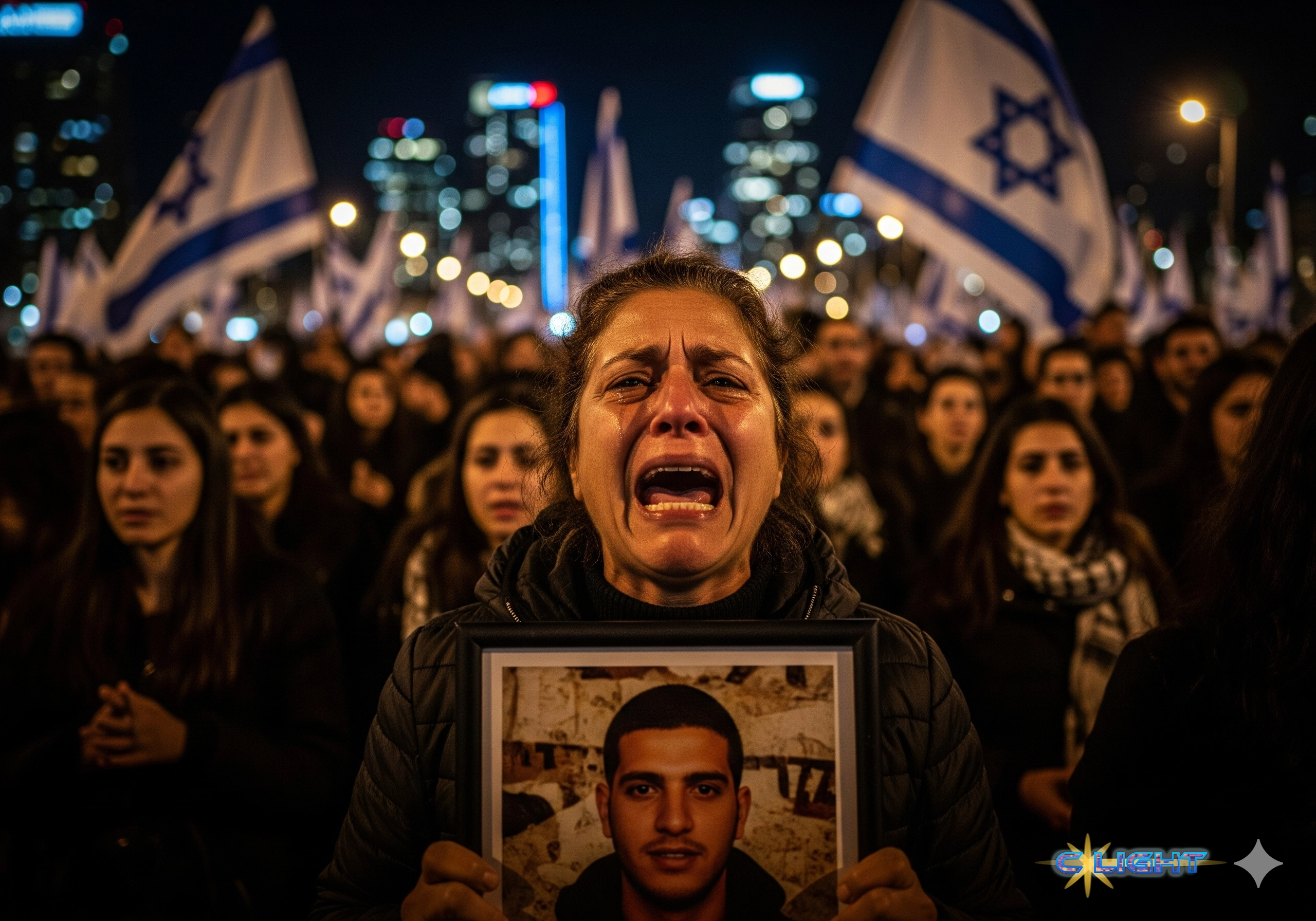5 minutes read time.
In the suffocating landscape of the Israeli-Palestinian conflict, the current moment is defined not by a singular battlefront but by a cacophony of irreconcilable demands, converging crises, and profound internal fractures. While Israeli forces push deeper into Gaza City, a top United Nations official warns of a “narrow window” to prevent mass famine. While the Israeli government vows “total victory,” tens of thousands of its own citizens flood the streets demanding an end to the war. And while the United States government actively works to dismantle the international legal framework that might hold its ally to account, Israel’s own Supreme Court is simultaneously fighting to uphold the rule of law within its borders. It is an intractable knot of contradictions, with millions of civilian lives hanging in the balance, captured by the exhausted plea of one Gaza City resident: “How many lives are going to be wasted? Enough is enough.”
The government of Prime Minister Benjamin Netanyahu finds itself embattled on two distinct fronts. From the outside, the pressure is immense. The U.N. has issued a stark ultimatum: without unimpeded aid, famine will spread beyond northern Gaza by the end of September. The warning is not hypothetical; according to the Hamas-run health ministry, five people, including three children, died from famine and malnutrition in a single 24-hour period. This unfolding humanitarian catastrophe has prompted international allies like Denmark to publicly call on Israel to “change course” and halt its military campaign.
Yet the most potent challenge to Netanyahu’s leadership may be emanating from within. On Saturday nights, the streets of Tel Aviv and Jerusalem have been filled with some of the largest protests in recent months. Throngs of demonstrators, led by the families of the 48 hostages still held by Hamas (of whom only 20 are believed to be alive), are demanding a deal for their release. The sentiment is not one of polite dissent, but of raw fury directed at the Prime Minister. “This is not a threat, Mr Prime Minister. If something happens, you will pay for it – this is a mother’s word,” shouted Anat Angrest, the mother of a captive soldier. This public anger is reportedly mirrored within the military establishment itself, where many serving and former generals are said to believe the IDF has achieved its maximum military objectives and that a further escalation will only endanger the remaining hostages and deepen the humanitarian disaster. Despite this concentric ring of pressure—from his people, his allies, and his own military—Netanyahu remains resolute, digging in deep with a vow to choose “victory over our enemies and evil propaganda against us.”

This profound defiance is enabled and emboldened by the actions of Israel’s most powerful ally. In a move that has stunned legal scholars, the Trump administration has launched a systematic campaign to shield Israel from the jurisdiction of the International Criminal Court (ICC). Using emergency powers that frame the documentation of human rights abuses as a threat to U.S. national security, Secretary of State Marco Rubio has imposed crippling sanctions on three Palestinian human rights groups. Their principal offense: providing evidence to the ICC for its investigation into alleged genocide and war crimes in Gaza.
These are not standard diplomatic maneuvers; they are the deployment of financial weaponry typically reserved for warlords and drug traffickers. The explicit goal, as analysts have noted, is to create a “chilling effect” across the entire human rights sector, starving the ICC of the on-the-ground evidence it needs to build a case. “This is how we apply sanctions to warlords and drug traffickers,” one former U.S. sanctions official lamented. “In this case, the core is the ICC.” This American shield of impunity effectively neuters the threat of international legal consequence, giving the Netanyahu government a free hand to pursue its maximalist war aims and even, as Foreign Minister Gideon Sa’ar ominously hinted, to consider the highly controversial annexation of the Occupied West Bank.
But while the United States works to dismantle legal accountability from the outside, a profound and unexpected battle for legal principle is being waged within Israel itself. In a rare ruling against the government’s conduct during the war, Israel’s own Supreme Court decided on Sunday that the state had failed to provide Palestinian security prisoners with adequate food for basic subsistence. Responding to a petition from Israeli human rights groups, the court found “real doubts” that prisoners were eating properly and ordered the government to comply with the law. This judicial rebuke targets the policies of National Security Minister Itamar Ben-Gvir, a far-right ultranationalist who had boasted of reducing prisoner conditions to the “bare minimum.”

The ruling exposes a deep schism within the Israeli state. The court’s action stands in stark contrast to the government’s broader conduct and the U.S.’s efforts to subvert international law. It is an affirmation from the nation’s highest court of a fundamental principle, echoed by the Israeli rights group ACRI: “A state does not starve people. People do not starve people – no matter what they have done.” Yet, Ben-Gvir’s reaction was one of immediate and total defiance, lashing out at the court for defending “Hamas militants” and vowing that his policy of minimal sustenance would “continue unchanged.”
Herein lies the central tragedy of the current stalemate. The political leadership in Israel, shielded by the U.S. and emboldened by its own hardline elements, remains locked in an intractable position. The war can only end, they insist, if Hamas releases all hostages and disarms. Hamas, in turn, reiterates its own immutable demand: the war must end and all Israeli forces must withdraw before the hostages are freed. With no diplomatic off-ramp, the conflict grinds on. The cacophony of protests, legal rulings, and international pleas is drowned out by the singular noise of war, all while the narrow window to prevent a famine of catastrophic proportions closes, day by unforgiving day.
Discover more from Clight Morning Analysis
Subscribe to get the latest posts sent to your email.










